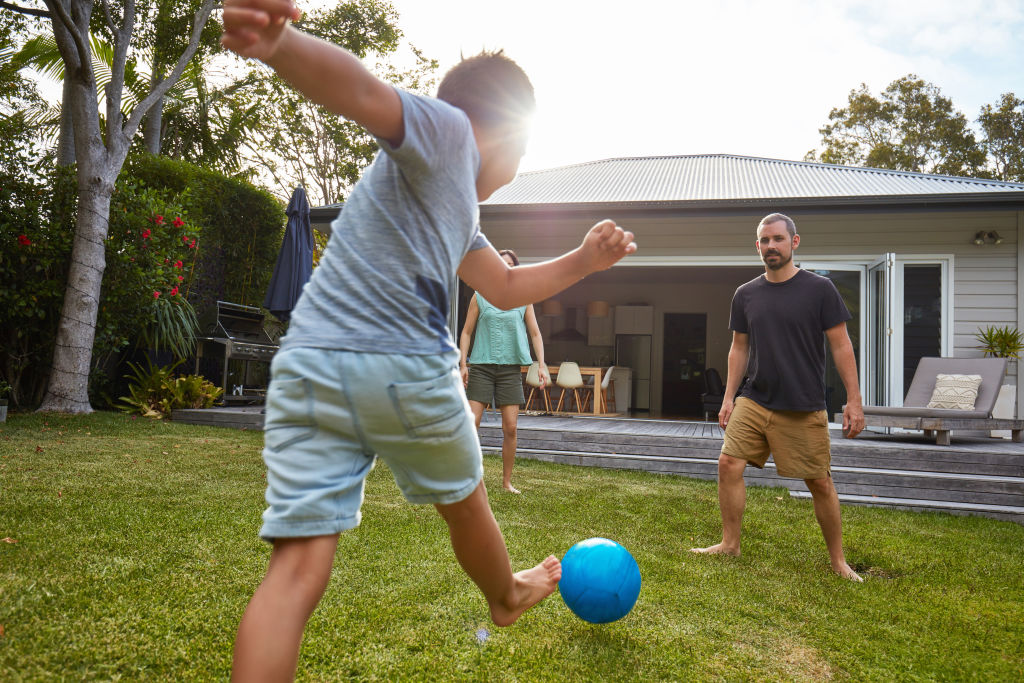Education: how parents can help students to manage stress

Today’s schoolchildren are stressed out, according to any number of studies on the subject over the last decade. And that was before the onset of a global pandemic.
“For the first time in history, school kids have access to a 24-hour news cycle,” says Eltham College principal Simon Le Plastrier. “It’s a case of ‘access all areas’, and there’s a lot of negativity and bad news out there.”
A year of remote learning, lockdown and social disconnection has only exacerbated things, notes Nakkita Egan, head of students at St Columba, a Catholic girls’ school in Melbourne’s north-west.
Stress manifests in different ways for different kids, say experts, but tiredness, poor diet, an inability to concentrate, and struggles maintaining social relationships and regulating emotions are good indicators a child is feeling the pressure.
Schools are alert to the correlation between student wellbeing and success, which is why many encourage them to switch off technology and adopt mindfulness and meditation techniques to tackle stress.
Le Plastrier says Eltham College has seen incredible transformations in kids after attending tech-free retreats and camping trips, where they report having felt a sense of freedom.
At the school, students have regular meetings with staff mentors, while older students also offer mentoring support to younger peers. A pastoral care program at St Columba’s has students meet daily with their house groups to discuss current issues and concerns. It’s a model also adopted by Sacré Cœur in Melbourne’s south-east.
Principal Adelina Melia-Douvos says students also happily seek guidance from the school’s three psychologists, who work with class teachers to deliver “age and stage appropriate” education and advice.
Egan says St Columba has had positive feedback from its series of “Conversations with the leadership team”, in which staff speak to parents about how to communicate with their children and share tips for problem-solving and stress management.
So, what are some pointers for parents?
Egan says sleep is the key. Encouraging students to adopt a healthy sleep routine may mean parents need to restrict screen time and access to technology. A “no devices in the bedroom” rule can be beneficial, as can introducing a regular bedtime, she says.
And rules and boundaries surrounding screens and technology should extend beyond that too, says Le Plastrier. Parents should be aware of what their children are doing online.
“Education surrounding social media is important,” he says, “and it’s a rapidly changing landscape, so parents really need to be ready to adapt. There’s no point in parents having a Facebook account but not fully understanding how it works.”
Educators agree that extra-curricular activities are hugely important to a healthy upbringing, provided kids genuinely enjoy the subject, and schedules still allow space for downtime.
“If children are given a chance to express and explore their passions while expanding their social connections,” says Sacré Cœur’s Melia-Douvos, “it can actually energise them.”
Showing interest in those passions and learnings can also give kids a boost in confidence, Egan says. Her tip for parents is to ask their child to teach them one thing they learnt that day.
“It’s twofold because it encourages closeness and connectedness between the parents and children, but it doubles as a study technique because it further cements the information for the child through the retelling, too.”
Nurturing that closeness within families has a direct impact on student happiness and success, she adds. “Supportive and connected families really do make a difference to the student, not just mentally and emotionally but also academically.”
Parents need to prioritise family time, too. While sharing meals as a family is hugely beneficial, if household schedules don’t align, there are other ways to encourage connection. It’s not the nature of the time that is important, but making the time, Egan says.
Parents can have expectations of their children without plying them with stress and pressure, Le Plastrier says. “Children enjoy feeling as though they can and will succeed.”
Fostering a sense of agency is crucial. “Seeing the realisation on a child’s face when they grasp a concept or master a skill for the first time is absolutely priceless,” he adds. “Our job is to give them the space and support to give it a go.”
We recommend
We thought you might like
States
Capital Cities
Capital Cities - Rentals
Popular Areas
Allhomes
More







